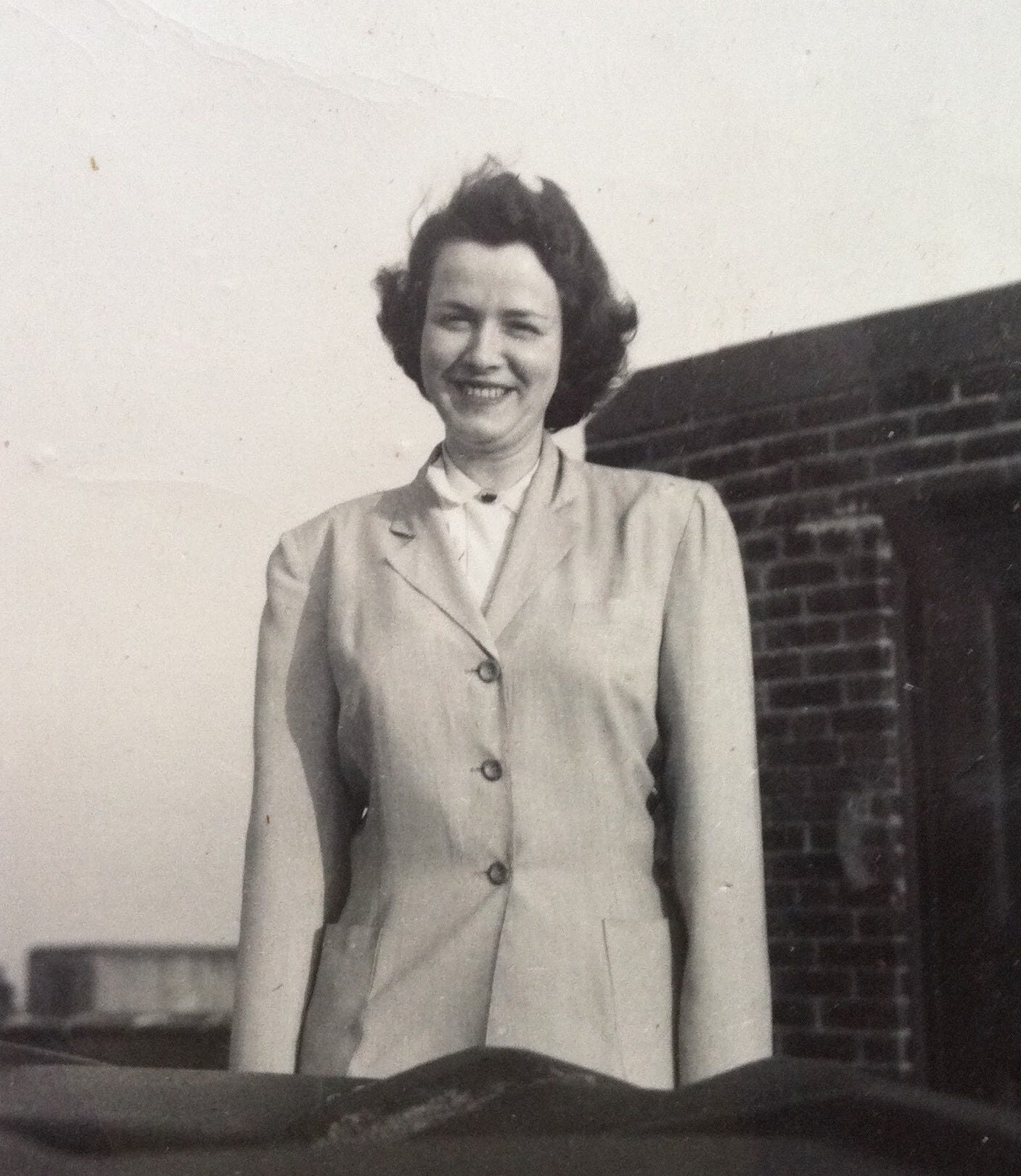April 26, 2020
Thinking of my mother today, on what would have been her 98th birthday. Catherine Cox was born in 1922, during the Warren G. Harding administration. Her arrival in the two-and-a-half-year window of his administration is the only thing that makes that administration, so profoundly juvenile, so profoundly corrupt, and so profoundly troubled, seem to me real.
I thought of Mother’s stories of her father’s World War One service and the pandemic that shaped her town today as I shopped, in my mask and gloves, during our own pandemic, which has now taken more than 55,000 American lives.
Mother was a smart, sensible, highly principled woman who cared deeply about American democracy, and I was glad she was not here to watch today as Trump’s frustration at the drumbeat of condemnation for his botched response to the pandemic and at his cancelled coronavirus briefings boiled over on Twitter.
He began his tweets with a tribute to his wife, Melania, who turned 50 today. Two hours later, he began a grievance campaign. He wrote “The people that know me and know the history of our Country say that I am the hardest working President in history. I don’t know about that, but I am a hard worker and have probably gotten more done in the first 3 ½ years than any President in history. The Fake News hates it!” And then, “I work from early in the morning until late at night, haven’t left the White House in many months (except to launch Hospital Ship Comfort) in order to take care of Trade Deals, Military Rebuilding etc. and then a read a phony story in the failing [New York Times] about my work schedule and eating habits, written by a third rate reporter who knows nothing about me. I will often be in the Oval Office late into the night & read and see that I am angrily eating a hamberger [sic; he later corrected the spelling] & Diet Coke in my bedroom. People with me are always stunned. Anything to demean.”
He went on to complain about Fake News, the Russia investigation, the awarding of “Noble” prizes (he meant Pulitzers, not Nobel Prizes) to hostile journalists, the “Do Nothing Democrats,” and to retweet a heavily doctored and offensive gif of former Vice President Joe Biden, his chief rival for the presidency in the 2020 election.
Many of these tweets disappeared as the day wore on.
I sometimes wish desperately that I were not living through this terrible assault on our democracy.
But when I am feeling sorry for myself, I always stop and remember that Mother lived through her own, similar crisis. In the 1930s, as a teenager, she caught diphtheria and spent months in bed in a dark room in a quarantined house while life outside among her friends went on without her. With little else to do, she listened to the radio. And so she heard Adolf Hitler harangue crowds as he consolidated power. She spoke no German, but later said she didn’t need to: she could hear the power in his speeches and in the way the people at his rallies roared their approval.
Mother went off to college in 1939, the first in her family to do so, knowing that something bad was brewing in Europe, but not yet afraid it would affect her life. The Japanese bombed Hawaii’s Pearl Harbor on December 7 of her sophomore year, and by Christmas, America was at war with Japan and Germany. In July 1943, shortly after she graduated from college, Mother joined the Army to lend her weight to defeating fascism.
Joining the army was certainly not in her life plan, and it was not at all an easy thing for a woman to do in 1943.
Desperate for personnel, the Army had created the Women’s Army Auxiliary Corps in 1942, but the idea of women in the army was too new for many Americans to stomach. People turned against the women who were taking desk jobs and thus seemed to be freeing up people’s sons and husbands to be killed on the battlefields. Rumors spread that WAACs were simply man-crazy; they were “khaki-wacky” and prone to getting pregnant. Recruiting fell off, but with a European invasion on the horizon, the country needed women in uniform more than ever. Army leaders recognized that they needed more WAACs than they could get, and also that the army could not use women in dangerous locations unless they received regular army benefits and protection in case they were captured.
So, in 1943, Congress created the Women’s Army Corps, and Mother joined up. Her decision to join the fight against Hitler infuriated and embarrassed her own mother, who refused to post the usual sign in the window indicating there was a service person in the family.
Mother passed more than thirty years ago, but I think of her often these days when I hear people say that democracy is lost and there is nothing we can do to reclaim it.
Mom was an anonymous twenty-one-year old when she decided to engage the fight against fascism. She had little to bring to the war effort except her time editing the college yearbook, so began as a recruiter, then quickly became a military writer. After her service, she went on to publish a hunting and fishing magazine and to write a newspaper column for a state politician. She also wrote copious letters to friends and family. In our house, it was utterly normal—even expected—for adult women to be constantly writing, especially to be writing letters.
Mom’s decision of July 1943, along with a similar decision by sixteen million other anonymous Americans-- including the 350,000 other American women who also joined one of the other service branches—helped to defeat fascism.
That decision, made by an anonymous but principled young woman determined to defend American democracy, still echoes.


